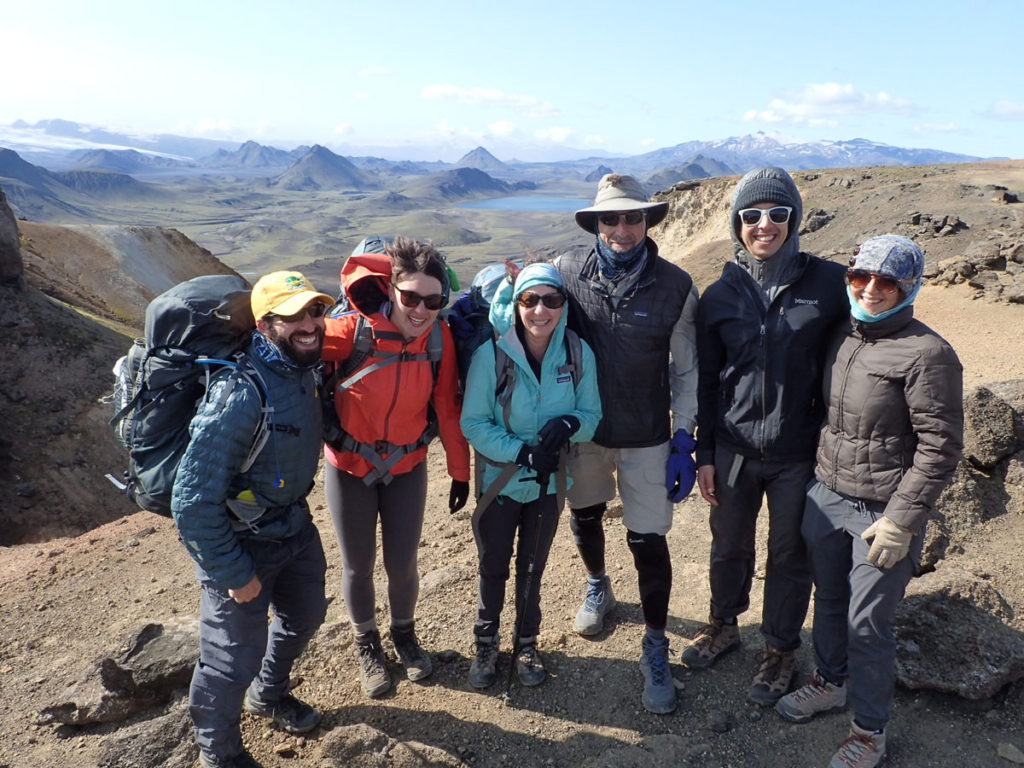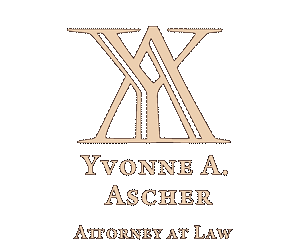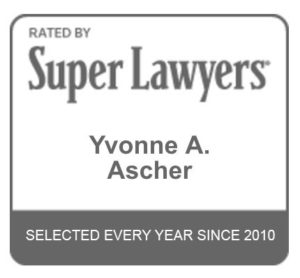Getting Started
As I always tell my children (and myself), you cannot finish a project unless you start. When it comes to creating a trust or will, many people are intimidated by the idea of seeing a lawyer, or anxious about addressing the issue of death. My role is to help guide you though the process. No one “fails” estate planning at my office.
The initial consultation generally takes 30-45 minutes. If you have done any estate planning previously, I ask that you bring your prior documents to the meeting. I also request you fill out in advance a simple questionnaire asking for general information concerning the nature of your assets and some questions about your family situation. During our first meeting, we will discuss your situation, and I will make a recommendation as to the type of plan I feel fulfills your needs and the price associated with completing such a plan. Most often I quote a flat fee for the estate planning work, so you do not need worry if you have questions or need to make minor adjustments to the initial drafts.
There is generally no charge for the initial estate planning meeting. (Such a fee arrangement, however, does not apply to meetings pertaining to other matters, such as estate or trust administration. If you are unclear of the nature of the proposed meeting, please feel free to clarify.)
Even if you are not sure exactly how you want your assets distributed, that is okay! From our discussions, I will make suggestions and together we will review various options. My job is to guide you through the estate planning process with the goal of creating the best possible plan for you and your family given your desires and situation. As almost all plans are revocable, if things change, revisions can be made in the future. Any plan is generally better than no plan!
Most, but not all, plans will use a Living Trust as the primary estate planning vehicle. However, for many young families, persons of limited means, or individuals who are not concerned about avoiding the probate process, a Will may be a more appropriate option.
In addition to the Trust and/or Will, most plans include Financial Powers of Attorney, Health Care Directives, and for married individuals, a Marital Agreement. For clients with young children, Nominations of Guardians are also part of a complete plan.
There is generally no charge for the initial estate planning meeting, which takes about 30-45min.
•••
Even if you are not sure exactly how you want your assets distributed, that is okay! From our discussions, I will make suggestions and together we will review various options.
•••
Almost all plans are revocable, so if your situation changes, revisions can be made. Any plan is generally better than no plan!
•••
Estate Planning
Estate planning involves more than just deciding how your assets will be distributed after you pass away. It also includes planning how you want to live your life.
A critical part of the process is designating the individual(s) or entities that will act on your behalf should you become physically or mentally unable to make decisions. If you fail to prepare written nominations, the Court will appoint someone to make such decisions for you through a process called Conservatorship. Such a time consuming, expensive and public process can be easily avoided by advance planning.
Every plan is personally tailored to each client. And because I place so much focus on discussing and drafting a plan that addresses your unique situation, subsequent issues involving family members and beneficiaries can generally be avoided. From my 30+ years of experience, I have learned where the “hot spots” are and can help clients create an estate plan that will be respected by their heirs and avoid costly post-death litigation.
Although you do not need to have all the answers before you start the process of planning, it helps to give some advance thought to how you would like your assets distributed following death, and who you wish to entrust with the power to carry out your wishes. If you do not know who you would like to nominate, we can discuss various options, including nominating a corporate fiduciary (such as a Trust Department at a bank) or a professional private fiduciary (an individual licensed by the State) to act as a Trustee for non-related individuals.
Although I do not believe that avoiding death taxes should be the driving consideration in creating your plan, the effect of potential taxes will be addressed. Given the current (2022) estate tax exemption of $12,920,00 per estate, in many cases minimizing other taxes following a death – such as property taxes – is a larger factor in the planning process.
What is a Trust?
A Trust is a legal document that acts like a Will in that it directs how assets are to be distributed following your death. With a Revocable Living Trust (also known as a Revocable Inter-vivos Trust or Grantor Trust), most of your assets are transferred into the Trust during your lifetime. (Some assets, such as retirement accounts or other assets that have a designated beneficiary are not transferred during your lifetime to the Trust.)
When you die, the acting “Trustee” administers the Trust according to the terms of the Trust and distributes the assets to your beneficiaries generally without the need for court involvement, thereby avoiding a probate. The Trust may provide for outright distributions or for interests to be held in a trust that continues after your death.
In most cases, you are the initial Trustee of your Trust, managing the assets for your benefit during your lifetime in the same manner as you did prior to creating the Trust. In addition, you can revoke or change any terms of the trust at any time as long as you are still competent. The terms of the trust become irrevocable when you die.
In your Trust agreement, you will also name a Successor Trustee (a person or institution) who will take over as the Trustee and manage the Trust’s assets if you should become unable to do so. Your successor Trustee would also take over the management and distribution of your assets when you die.
A Living Trust does not, however, remove the need for a Will. Generally, you will still need a Will – known as a Pour Over Will – to cover any assets that have not been transferred to the Trust. You can have up to $184,500 outside the Trust and still avoid probate. For this reason, in many cases, nominal accounts and assets are not transferred to the Trust during your lifetime.
Although the Trust itself has no inherent tax saving benefits, the provisions of the Trust may be structured so as to reduce estate taxes after death. During your lifetime, the Trust reports income under your personal social security number. No separate tax return is required.
Estate planning involves more than just deciding how your assets will be distributed after you pass away. It also includes planning how you want to live your life.
•••
Every plan is personally tailored to each client. And because I place so much emphasis on discussing and drafting a plan that addresses your unique situation, subsequent issues involving family members and beneficiaries can generally be avoided.
•••
Trust & Probate Administration
My office will assist you with the administration of your estate after death. Although many assets pass automatically to named beneficiaries, there are usually some assets held in the name of the decedent alone that require administration to transfer to the beneficiary(ies).
If the assets are not held in the name of a Trust, and the total value of such assets exceeds $184,500 (as adjusted periodically for inflation), a probate is generally required in order to transfer title. Probate is the Court-supervised process of moving assets from the name of a deceased individual to his or her heirs. Although the laws in California allow Attorneys to charge a percentage of the gross value of the assets for probate services, my practice is to charge based on the time spent in assisting you with the process and the complexity of the matter. This fee is generally significantly less than what is permitted under the statutory compensation provisions. (By law, I may not charge more than the statutory amount without court approval and by showing extraordinary circumstances.)
If the decedent had a Living Trust, some type of administration is still necessary. Although many individuals believe that having a Living Trust means you do not need an Attorney to assist with the distribution of assets after a death, this is generally not the case. The State of California imposes certain affirmative duties on a Trustee after a death. Generally, an experienced Attorney is needed to guide the Trustee in the fulfillment of such duties. As with many things, having someone experienced in the process to advise the Trustee at the outset minimizes issues later on. My office has extensive experience in guiding Trustees through the administration tasks.
Administration fees are charged based on an hourly rate. My paralegals are experienced in handling many of the tasks, thereby ensuring the lowest possible fees.
As with many things, having someone experienced in the process to advise the Trustee at the outset minimizes issues later on. My office has extensive experience in guiding Trustees through the administration tasks.
•••
Common Estate Planning Terms
A Will is a legal document that sets the names of the individuals (or charitable organizations) who will receive your assets after your death, either by outright gift or in a Trust. The Will also includes a nomination of an Executor, the individual(s) or corporation appointed and supervised by the probate court to manage your estate; pay your debts, expenses and taxes; and distribute your estate according to the instructions in your Will.
Most assets in your name alone at your death will be subject to your Will. However, assets that have designated beneficiaries, such as life insurance policies, IRAs and other tax-deferred retirement plans, and some annuities, pass directly to the named beneficiaries following death and are not governed by the terms of the Will. For example, if in my Will I provide that my estate is to be divided equally among my three (3) children, but I’ve named only one child as the beneficiary of a life insurance policy. The insurance proceeds will pass solely to that named children, irrespective of the terms of the Will.
A Living Trust (also commonly known as a “Family Trust”, “Inter-vivos Trust” or “Revocable Trust”) is a written legal document that partially substitutes for a Will. With a Living Trust, your primary assets (your home, bank accounts and stocks, for example) are re-titled in the name of the Trust in order to avoid the probate process. The assets held in the Trust are administered by the Trustee for your benefit during your lifetime, and then transferred to your beneficiaries when you die, generally without court involvement. As with a Will, certain assets that are transferred by beneficiary designation may be held outside the Trust.
A Trustee is an individual or licensed corporation who manages the Trust assets. Generally the individual or individuals who create a Trust serve as the initial Trustee. However, a successor is nominated to serve following death or incapacity. The Trustee is a “fiduciary,” which generally refers to someone who makes decisions on behalf of someone else. A fiduciary is held to the highest ethical standards. Clearly, your Trustee should be someone you trust.
Generally the same individual(s) nominated as Trustee are also named as your Executor and Agent in your Financial Power of Attorney.
A Durable Power of Attorney for Financial Matters is a type of power of attorney that is continues to be effective even after the principal (the person who creates the Power of Attorney) becomes incapacitated. By such a document, an Agent is given authority to make decisions on behalf of the Principal. As with a Trustee, an Agent is considered a fiduciary, and is held to the highest ethical standard. There are several different versions of Powers of Attorney, including but not limited to “immediate” and “springing.”
A Health Care Directive is an important document that sets forth your wishes concerning your health care in the event you are unable to make such decisions yourself. Generally an Agent is nominated under the document to act on your behalf in such a situation, although the document can be effective without naming an individual. This document sets forth your wishes with respect to end of life decisions, donation of organs, burial vs. cremation election, etc.
In a Nomination of Guardian you indicate the individual(s) you wish to serve as Guardian of your minor children. Such a Nomination is generally prepared as a separate document for ease in updating.
A Marital Agreement is a document that confirms that assets acquired during marriage, other than by gift or inheritance, are community property assets. Generally such classification is beneficial from a tax perspective. In addition, the document frequently elects to apply the “aggregate” rules of community property versus the default “item” theory. For a simple explanation of the difference between these rules, you’ll just have to come see us!
Testimonials
Yvonne was able to carry out my mother’s wishes in a thoughtful, compassionate manner. At the end of the process my family is closer than before. My mother would be proud!
~ Elizabeth
Thank you for making this experience stress-free and easy to understand.
~ Laura
Slow down, breathe, answer all the questions to the best of your ability … and leave the rest to Yvonne. In the end you will have estate plan records that best serve your needs.
~ Karee & Christian
Our experience updating our trust and wills was smooth and easy from start to finish. All of our questions were answered, and at no time did we feel rushed in making important decisions.
~ Michael
A friend who is a successful, retired attorney told us he felt Yvonne “asked all the right questions.” She redid our Wills and Trusts and we are very pleased with the results.
~ Robert
Yvonne was very articulate in prescribing the best means to meet our long term goals.
~ Margaret & Fred
Yvonne’s knowledge, intelligence, and experience led her to answer our questions before we realized we had them. If we had more than one life to live, we would certainly ask Yvonne to help us design those final decisions again. We are grateful for her careful work.
~ Louise & Joseph
Yvonne was able to get my “wild” family organized and informed. Patience and knowledge are abundant in her office.
~ Marion
Yvonne is always a pleasure to work with – professional, responsive, conscientious, thorough. And then, when work is done, warm and friendly and fun.
~ Jennifer
I take pleasure in handing out Yvonne’s business cards.
~ Ron
What a blessing it has been to have worked with Yvonne and her incredible staff not once but four times! In addition to my own trust, I participated in the estate plans of my mother, brother, and former wife. Each time I experienced exceptional personal service, a warm and friendly environment, ease of accessibility, reasonable fees and incomparable legal expertise.
~ Andre
Her breadth of knowledge in estate planning is encyclopedic. What is clearly a complicated issue was made considerably less so for the layman.
~ Loren
Yvonne Ascher provided such fine services to me that I recently asked her to help a dear friend who is near death and did not have a trust. I called her office on a Friday and two days later (on a SUNDAY) Yvonne was at my friend’s home with her newly drawn trust, heath directive, and power of attorney. Yvonne answered all of her questions in an understandable way, and put my friend’s mind at ease that her wishes can now clearly be carried out. I am so grateful for Yvonne’s help.
~ Carleen
About Yvonne
I like to help people solve problems, and I pride myself in making the estate planning process comfortable, rewarding and respectful. My ultimate goal is to have you leave my office feeling better than when you arrived, with a smile on your face.
In addition to serving my clients, I am a professor at the Monterey College of Law and often speak on estate-related topics to the general public and other professionals. I have been a presenter for CEB in the Monterey and Santa Clara County areas and continue to speak for many local community organizations, including Parent’s Place and Interim.
I am the proud mother of two sons, Jake and Aaron, and wife to Leonard Laub. In addition to my family, my other passion for the last 20 years has been MY Museum (Monterey County Youth Museum). As the founding President and past President, I am involved in helping the organization develop healthy children and families, thereby strengthening our community. I have also chaired the Museum’s annual Pirate Treasure Hunt. (Arrggg.)
In addition to MY Museum, I have been on the Board of Congregation Beth Israel, the Monterey County Alzheimer’s Association (a founding board member), Junior League of Monterey, and PTA President of Monte Vista School. I have also been active with York School, Dance Kids and Legal Services for Seniors.
I look forward to working with you.
Forever curious, Yvonne Ascher
•••

Hiking with family in Iceland (2019)

Cycling with spouse near Paso Robles (2016)
 Color coordinating outfits with the glaciers in Patagonia (2018)
Color coordinating outfits with the glaciers in Patagonia (2018)
30+ Years of Estate Planning Experience
1985 — Graduated from Monterey College of Law and passed the State Bar of California
1991 — Received LL.M. (Master of Laws) in Taxation from Golden Gate University
1993 — Certified as a Specialist in Estate Planning, Probate and Trust Law by the State Bar of California
1996 — Opened own estate planning practice after working with some of the most respected estate planners in the Monterey-Salinas area.
2006 — Began teaching the “Wills & Trusts” class at Monterey College of Law
2011 — Appointed to TEXCOM (the Trust and Estate Executive Committee for the California State Bar) to work with attorneys from all over California to monitor the Estate Planning and Administration practice in the state. The goal of the organization is to make the estate planning process more efficient and fair by tracking legislation, drafting new laws and educating members of the legal community and general public.
2014 — Yvonne was admitted to the America College of Trust and Estates Counsel (ACTEC). The American College of Trust and Estate Counsel is a national organization of approximately 2,600 lawyers nationally elected to membership by demonstrating the highest level of integrity, commitment to the profession, competence and experience as trust and estate counselors.
2017 — Yvonne was elected vice chair of the Trusts and Estates Executive Committee for the State of California (TEXCOM).
2018-19 – Yvonne served as Chair of TEXCOM, advising the California legislature on estate planning issues.
Contact Us
Noland Hamerly Etienne & Hoss
470 Camino El Estero, Monterey, CA
Tel: 831-373-3622 Ext. 308
yascher@nheh.com
The content on this website is intended as general information only and should not be construed as formal legal advice nor the formation of a lawyer/client relationship.











